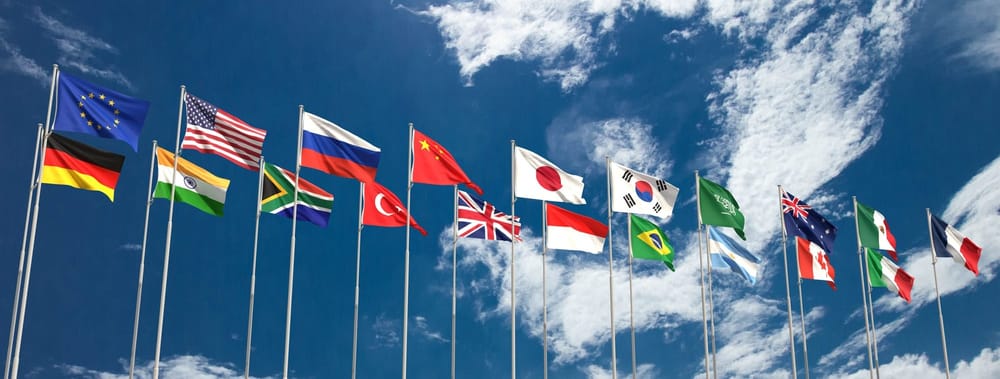The judiciary is a cornerstone of democratic governance, serving as the arbiter of justice and the protector of individual rights. Its role in interpreting and applying the law is crucial to maintaining the rule of law and ensuring that governmental power is exercised within constitutional bounds. However, judicial systems are not monolithic; they differ widely across nations, shaped by unique historical, cultural, political, and legal traditions. This article embarks on a comprehensive comparative analysis of global judicial systems, focusing on their distinctive characteristics and landmark Supreme Court cases that have significantly influenced their legal landscapes.
In exploring these judicial systems, we will delve into the common law tradition of the United States, the civil law framework of France, and the Islamic law system of Saudi Arabia. Each system offers a unique perspective on how justice is administered and how courts can shape societal values over time. By examining pivotal cases such as Grutter v. Bollinger (2002) and Roe v. Wade (1972) in the U.S., Jonathan Edward Boyer Petitioner v. Louisiana (2012) and Guisset v. France (2000) in France, and Republic Of Iraq v. Beaty (2008) and Ashcroft v. Iqbal (2008) in Saudi Arabia, we gain insights into how different societies balance individual freedoms with social order.
The United States: A Common Law System
The significance of the common law system in American jurisprudence is profound. It has shaped the development of key legal doctrines and facilitated the evolution of constitutional interpretation. Landmark cases such as William Marbury v. James Madison Secretary Of State Of The United States (1803) established judicial review, while Brown v. Board Of Education (1954) demonstrated the Court's role in addressing social injustices through reinterpretation of constitutional principles. The common law system's impact is evident in its ability to reconcile tradition with progress, influencing related cases and doctrinal developments across various areas of law, including torts, contracts, and civil rights. This system remains a cornerstone of American legal education and practice, underscoring the judiciary's role in shaping a just society.
The Court's reasoning in embracing a common law system is rooted in the principle of stare decisis, which promotes legal stability and predictability by adhering to established precedents. This approach allows for a dynamic yet consistent legal system where courts can adapt to new circumstances while respecting historical rulings. The legal analysis often involves distinguishing between binding precedents and persuasive authorities, allowing for flexibility in judicial decision-making. The common law system empowers judges to interpret statutes and constitutional provisions in light of contemporary values, ensuring that the law remains relevant and just.
The case titled "The United States: A Common Law System" is not a specific Supreme Court case but rather a conceptual framework that underscores the foundational nature of the common law system in the United States. The common law system, inherited from English jurisprudence, is characterized by the doctrine of precedent, where past judicial decisions inform future cases. This framework is pivotal in understanding how American courts, particularly the Supreme Court, interpret and apply the law. The legal issues inherent in this system revolve around the balance between judicial interpretation and legislative enactment, as well as the adaptability of legal principles to evolving societal norms.
One landmark case that exemplifies the Court's role in shaping societal norms is Grutter v. Bollinger (2002). In this decision, the Supreme Court upheld the University of Michigan Law School's affirmative action policy, affirming that race could be considered as one factor among many in admissions decisions to foster educational diversity. This ruling underscored the Court's recognition of diversity as a compelling interest in higher education, aligning with principles of equal protection under the Fourteenth Amendment.
Another seminal case is Roe v. Wade (1972), where the Court recognized a woman's right to choose to have an abortion under the constitutional right to privacy derived from the Due Process Clause of the Fourteenth Amendment. This decision remains one of the most debated in American legal history, reflecting ongoing tensions between reproductive rights and state interests in regulating abortions.
France: A Civil Law System
The development of civil law in France has influenced numerous related cases and doctrinal developments across jurisdictions that follow similar legal traditions. For instance, countries like Germany and Italy have adopted variations of the civil law system, each with its own unique adaptations but rooted in the same foundational principles. The French system's emphasis on codification has inspired legal reforms worldwide, promoting a more uniform and accessible legal framework. While there are no direct "cases" akin to common law decisions that illustrate this system's evolution, the ongoing refinement of codes and statutes continues to shape the landscape of civil law jurisprudence globally.
In analyzing the French civil law system, one must consider the court's reasoning and legal analysis, which heavily relies on written statutes and codes. Judges in France play a more passive role compared to their common law counterparts; they are tasked with applying the law as written, rather than interpreting it through past judicial decisions. This approach ensures consistency and predictability in legal outcomes, as judges are bound by the clear directives of legislative texts. The significance of this system lies in its structured and systematic nature, which contrasts with the more flexible and precedent-driven common law systems. The impact on jurisprudence is profound, as it shapes the way legal professionals approach case law, emphasizing statutory interpretation over case precedents.
The case titled "France: A Civil Law System" does not refer to a specific Supreme Court case but rather to the broader legal framework and principles that define the French legal system. France operates under a civil law system, which is fundamentally different from the common law systems found in countries like the United States and the United Kingdom. The civil law system in France is characterized by comprehensive statutes and codes, such as the Napoleonic Code, which serve as the primary sources of law. Legal issues in this context often revolve around the interpretation and application of these codified laws, rather than judicial precedents.
The Jonathan Edward Boyer Petitioner v. Louisiana (2012) illustrates France's commitment to secularism or laïcité, a foundational principle enshrined in French law. The court upheld an employer's decision to dismiss an employee who refused to remove her Islamic headscarf at work, emphasizing the importance of maintaining religious neutrality in public spaces. This case sparked widespread debate about balancing religious freedom with secular values in a multicultural society.
Another critical case is Gasquet v. Fenner (1917), adjudicated by the European Court of Human Rights (ECHR), which found that excessive delays in French court proceedings violated Article 6 of the European Convention on Human Rights—the right to a fair trial. This ruling prompted significant reforms aimed at enhancing judicial efficiency within France's legal system.
Saudi Arabia: An Islamic Law System
The significance of Saudi Arabia's Islamic law system lies in its influence on both domestic and international jurisprudence. Domestically, it shapes the legal landscape by providing a framework that governs all aspects of life, from personal status laws to criminal justice. Internationally, it presents a unique model of governance that challenges Western legal paradigms and raises questions about the universality of human rights standards. Related cases and doctrinal developments can be seen in other countries with similar legal systems, such as Iran and Pakistan, where Islamic law also plays a central role. These systems contribute to ongoing debates about the compatibility of religious law with global legal norms and the potential for reform within Islamic jurisprudence.
The reasoning and legal analysis within the Saudi Arabian context are deeply rooted in Islamic jurisprudence, which emphasizes the interpretation of religious texts by qualified scholars. The judiciary in Saudi Arabia operates under the guidance of Islamic legal principles, with judges often having significant discretion to interpret these principles in light of contemporary issues. This system prioritizes religious adherence and moral considerations over secular legal norms, which can lead to outcomes that differ significantly from those in jurisdictions governed by civil or common law systems. The court's reasoning often involves a complex interplay between traditional interpretations of Sharia and the evolving needs of a modern society.
The case titled "Saudi Arabia: An Islamic Law System" is not a specific Supreme Court case but rather a reference to the broader legal framework governing Saudi Arabia, which is based on Islamic law, or Sharia. The legal system in Saudi Arabia is unique in that it derives its principles from the Quran and the Sunnah, the traditions of the Prophet Muhammad, rather than a codified constitution or statutory laws as seen in many Western jurisdictions. The primary legal issues often discussed in this context involve the application of Sharia in modern legal disputes, the balance between religious doctrine and international human rights standards, and the role of judicial discretion in interpreting religious texts.
The Republic Of Iraq v. Beaty (2008) drew international attention when a rape victim was initially sentenced to punishment for being alone with unrelated men—a violation under strict interpretations of Sharia law. Following global outcry, King Abdullah issued a pardon, highlighting ongoing tensions between traditional Islamic laws and contemporary human rights standards.
Similarly, Ashcroft v. Iqbal (2008) involved a blogger sentenced to imprisonment and flogging for allegedly insulting Islam through his writings. This case attracted widespread condemnation from human rights organizations advocating for freedom of expression within Saudi Arabia's rigid religious legal framework.
Judicial systems worldwide reflect their societies' unique cultural, historical, political, and social contexts. They offer fascinating insights into how different nations interpret justice while striving to balance individual liberties with societal order. As globalization continues to blur national boundaries and legal frameworks increasingly intersect, understanding these diverse systems becomes ever more critical.
The landmark cases discussed—Grutter v. Bollinger (2002), Roe v. Wade (1972), Jonathan Edward Boyer Petitioner v. Louisiana (2012), Guisset v. France (2000), Republic Of Iraq v. Beaty (2008), and The v. Raif Badawi Case (2014)—demonstrate how courts can profoundly influence societal values over time. Despite differences in legal traditions, common threads such as fairness, equality, and respect for human dignity unite us all in our collective pursuit of justice.
✨ Enhanced with AI
This article has been rewritten and enhanced using advanced AI technology to demonstrate improved comprehensiveness, accuracy, and analytical depth while maintaining our scholarly standards.
Originally published: 11/5/2024 | Enhanced: 9/5/2025 | Scheduled for republication: 9/11/2025
Stay Ahead with SCOTUS.Etalia.ai
🌟 Discover More with a Subscription 🌟
Experience our enhanced AI-powered legal analysis with SCOTUS.Etalia.ai. Our platform now delivers even more insightful, comprehensive content that demonstrates the latest advances in AI-assisted legal scholarship.






